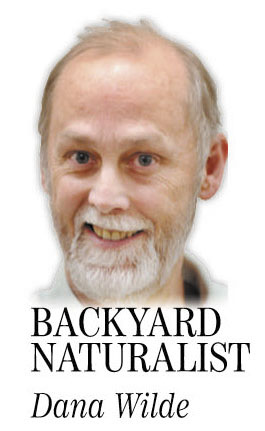Since some of us have been on the topic of Henry David Thoreau lately, here’s another thought he offered about 160 years ago — on guns. No one will be pleased by all of it.
Thoreau was in favor of guns. In “Walden” he says, “when some of my friends have asked me anxiously about their boys, whether they should let them hunt, I have answered, yes, — remembering that it was one of the best parts of my education.”
“We cannot but pity the boy who has never fired a gun,” he goes on to say; “he is no more humane, while his education is sadly neglected.”
Part of his point is that, whether we like it or not, we have a wild side with a basic, original instinct to hunt and fish. Thoreau says that when he lived in his cabin on Walden Pond, he sometimes found himself “ranging the woods, like a half-starved hound, with a strange abandonment, seeking some kind of venison which I might devour.” He says elsewhere that he indeed killed and ate a woodchuck, though just once.
These are, in other words, natural impulses that children have not yet learned to manage. It does no good to deny a boy’s (or girl’s) natural impulse to hunt or fish, or to shoot things, because that impulse still exists whether you let him have a gun or not. Hunting is often “the young man’s introduction to the forest,” as Thoreau says it was for him.
Hunting is an aspect of our wild side. At the same time, there’s “an instinct toward a higher, or, as it is named, spiritual life.” So for the boys who in childhood want to shoot animals: “Make them hunters … trusting that they would soon outgrow it. No humane being, past the thoughtless age of boyhood, will wantonly murder any creature.”
In other words, the boy naturally follows his wild side without thinking about it and kills things for the sake of killing. But his emotional and moral nature matures, he grows out of it and kills only to eat. The gun helps the child grow into maturity.
Thoreau explains at some length that killing to eat also may be outgrown. He himself eventually found killing, cleaning and eating flesh distasteful; and by the time he was living in his cabin, he had found even fishing to be problematic to his imagination.
“It is a faint intimation,” he says of this moral feeling, “yet so are the first streaks of morning.”
Not just individuals, but whole nations and cultures, Thoreau says, occupy their own stages on the path to emotional and moral maturity.
As far as I can remember, Thoreau speaks of guns only in the context of their use in hunting. He does not talk about guns for self-defense. Whether the 1850s were a more or less dangerous time to live than 2013, I’m not sure. He does express respect for the abolitionist John Brown, who took up arms to combat slavery.
It’s always tricky to speculate what dead people “would have thought” about a contemporary issue, but anyway, I sort of doubt Thoreau would have had any patience for arguments based on formal legal rights, such as the Second Amendment of the Constitution. The government “is a sort of wooden gun to the people themselves; and if they should ever use it in earnest as a real one against each other, it will surely split,” he says. We get the government we end up needing.
Thoreau’s authority was not the law, but his own conscience. His point was that each person has a responsibility to awaken and read his own conscience, regardless of what laws or customs or tired habits of thought order him or her to do. Is your conscience based on your sense of right and wrong, or based on your legal rights?
Sorting through these questions is a lot harder than it sounds, often no clearer than the first dim glimpse of morning light. “Our whole life is startlingly moral,” Thoreau says in “Walden.”
There are sound moral, educational reasons for hunting weapons being available to people who are learning to manage their wild side and maturing toward the “higher laws” of their humanity, according to Thoreau.
What are the educational or moral reasons for keeping combat weapons? We know from study after scientific study that states and nations with the fewest guns have by far the fewest gun deaths and injuries. If the presence of such weapons leads to increased suffering and death, does a mature conscience acknowledge a responsibility to do without them? Or are we a culture in a state of arrested emotional development, unwilling to give up our childhood impulses?
Thoreau — who knew the woods behind Concord and between human ears as well as any American who ever lived — would, I’m pretty sure, conclude: Well, follow your conscience.
Dana Wilde lives in Troy. His writings on the Maine woods are collected in “The Other End of the Driveway,” available from Booklocker.com. Backyard Naturalist appears the second and fourth Thursdays of the month.
Send questions/comments to the editors.



Success. Please wait for the page to reload. If the page does not reload within 5 seconds, please refresh the page.
Enter your email and password to access comments.
Hi, to comment on stories you must . This profile is in addition to your subscription and website login.
Already have a commenting profile? .
Invalid username/password.
Please check your email to confirm and complete your registration.
Only subscribers are eligible to post comments. Please subscribe or login first for digital access. Here’s why.
Use the form below to reset your password. When you've submitted your account email, we will send an email with a reset code.